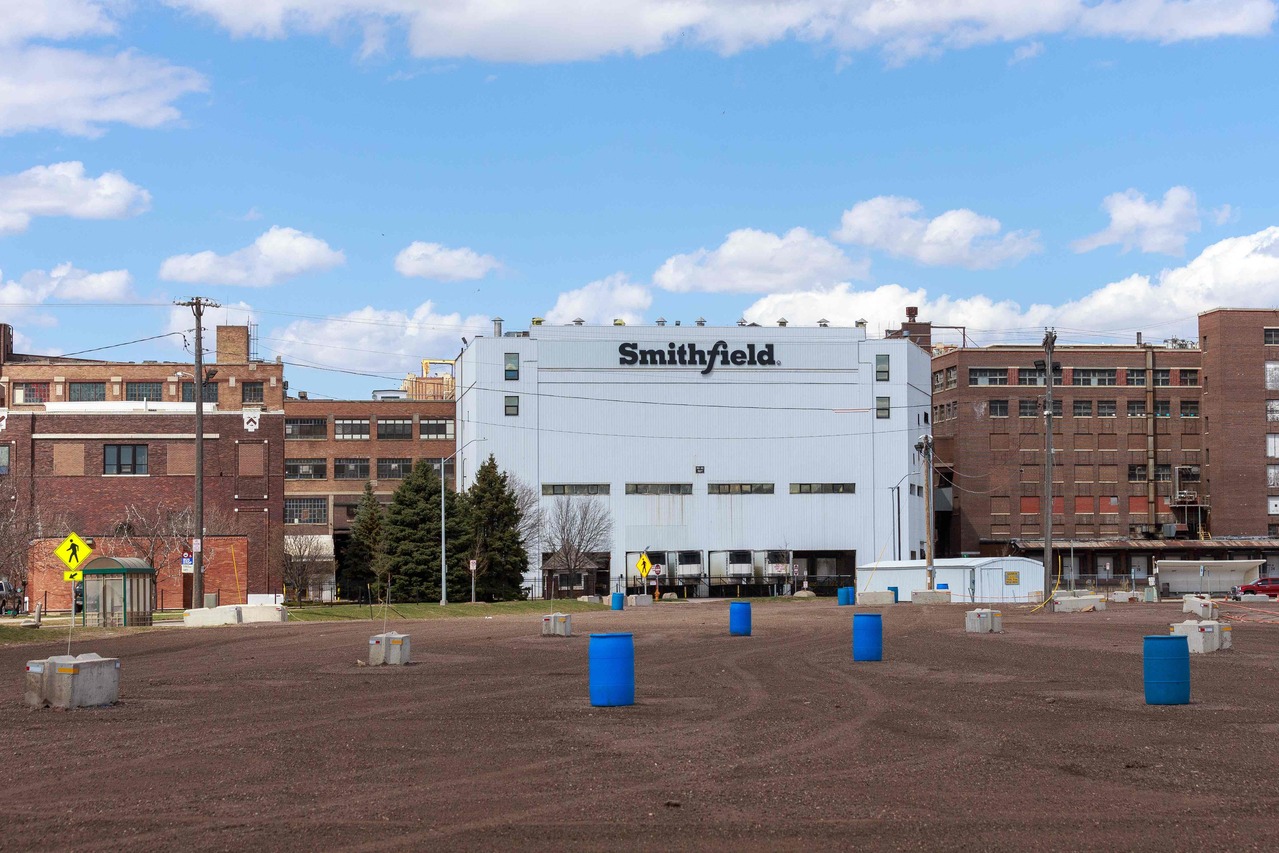From meat plants to nuclear plants, hot spots can emerge in US
Sign up now: Get ST's newsletters delivered to your inbox

The Smithfield Foods plant in South Dakota is one of largest known coronavirus clusters in the US.
PHOTO: AFP
WASHINGTON - It was an almost mundane mistake which turned a South Dakota meat packing plant into an easy target for the coronavirus - giving out information only in English when workers there spoke 40 different languages.
By Thursday (April 23), 783 workers tested positive and two had died.
Across the United States, thousands of prisoners have caught the illness, and the number of cases has grown more than threefold in the last week alone, the Marshall Project reported on April 24.
"Thousands more workers, correctional officers and medical staff have been sickened. And more than 140 people - most of them incarcerated - have died thus far," the non-partisan, non-profit news organisation reported.
The Marshall Project has collected data from states' prison systems for the past month, and the Federal Bureau of Prisons. By Wednesday last week, it concluded that at least 9,437 people in prisons had tested positive for Covid-19.
"The number of new cases among prisoners is more than doubling each week," it reported. And it warned: "As startling as these figures are, they are almost certainly an undercount."
"Sixteen prison systems are not releasing information about how many prisoners they are testing, including the Federal Bureau of Prisons, which has seen several major outbreaks of coronavirus in its institutions."
These episodes show the behavioural changes adopted to avoid the virus are only as strong as their weakest spots.
In the US, this has been nursing homes for the elderly; prisons; the Smithfield Foods plant in South Dakota, and a nuclear power plant in Burke County, Georgia. Schools also have the potential to produce Covid-19 clusters.
"How do you socially distance in the steel corridors of a nuclear power plant?" Dr Paul Sullivan, a professor at the United States National Defence University, told The Straits Times. "How do you socially distance on the narrow gangways of an oil rig?"
It is difficult. Which is possibly why Plant Vogtle, a nuclear power plant in Georgia, has seen 109 employees tested positive for Covid-19.
Amid the push to reopen America's economy, the downside risk worries analysts and the White House; President Donald Trump last week, for all his seeming support for anti-lockdown protesters in several states, disagreed with Georgia's governor for giving the green light to establishments like bowling alleys, hair and nail salons and tattoo parlours to open.
"There's been a lot of thought to address what are the safest places and ways to reopen first," Dr Mark McClellan, a physician and economist who directs the Duke-Margolis Center for Health Policy, told The Straits Times at a virtual briefing for journalists.
In the initial rounds, there would likely be no big sporting events, and bars or areas where a lot of people congregate would probably be excluded, he said.
There would be "modified versions of going to a restaurant or going to a movie, maybe modified versions of even playing golf."
"With that we also need to be monitoring closely for whether businesses and people are following...guidelines," he added.
To enable some additional businesses to reopen under modified conditions, several key steps are needed, Dr McLellan said.
"One is a healthcare system that is not under duress, so adequate capacity for potential further surges in the virus and also adequate capacity at the same time to provide critical services that Americans need."
"A second key dimension is responses by businesses," he said.
"You'll see hopefully...distancing, additional cleaning and disinfection practices among employees."
"We need to monitor how well the implementation of these steps are going and keep improving our ability to safely reopen as we go along," he said.


